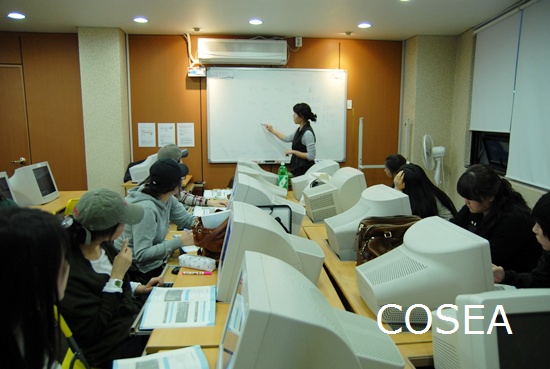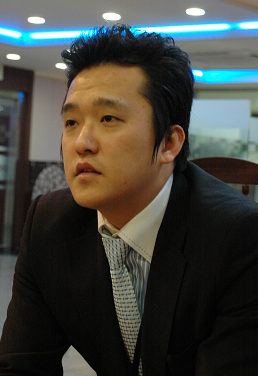Tour operators, planning your once-in-a-lifetime experience
THE TRAVEL industry is often thought to be an industry without chimneys: it creates economic value without causing harm to the local environment. With the environment getting worse because of the pollution from other industries, the travel industry is becoming more important than ever before. It is not surprising, then, that the travel industry has developed continuously since around 1990, despite recurring economic slumps and crises. This has given new prominence to tour operators, the key actors in this field, and their job prospects are truly bright in the years to come.


What is a tour operator?
Tour operators are those who plan and develop tour commodities, designing itineraries for customers. They are also called tour planners or travel coordinators. They make on-the-spot surveys of travel destinations, gather tour-related information, and then subject the information they obtained in the field to detailed analysis, extracting usable data and finally producing commercial travel packages. They might have a customer who wants to travel around Japan for three days and two nights, but does not have any knowledge of where to go or stay or what to do when there. The tour operators will then design travel packages for the customer, imagining that they know as little as the customer. They often design packaged tours such as honeymoons with reservations in hotels, airports, and ground transportation.
Why the job is becoming popular
With the widespread implementation of the five-day work week, employees are left with nearly three days of spare time; Friday afternoon, Saturday, and Sunday. Thus the so-called *doggaebi* tour, scheduled from Friday night to Monday morning, became popular, and soon there was a high-demand for these well-planned short trips. Tour operators, who design these trips, thus assumed a principle role in the travel industry.
At the same time, changes in government policy made travel more convenient for customers. One of the most important examples is the U.S. visa system. Before the time required to get visas for the United States was prohibitively long, easy-to-use electronic passports were recently introduced for travel to the United States, and the visa requirement was waived for tourists. With it becoming easier and easier to travel to the United States, the number of departures to the country has grown together with number of package commodities. And thus the demand for tour operators has risen.
How to become a tour operator
In the past, graduates of tourism departments were given preference for tour related jobs. Yet, since a job as a professional requires hands-on-background, it does not matter so much anymore if one has taken theoretical courses at a university. Much more important are tourism-related credentials such as TC (Tour Conductor), OP (Operator), and CRS (Computer Reservations System) qualifications. Tour conductors are in charge of guiding customers to destinations in accordance with their itineraries, and TC qualification is only available to those who have accumulated experiences in tour agencies. With 16 hours of study at the Kyonggi Univ. ACE (Adult & Continuing Education), one can get TC qualification. The OP qualification is not yet officially recognized, although it has existed for more than a year and is influential in practice. Every kind of qualification requires an official examination after being trained for a year. OP qualification is currently in the process of becoming official. CRS qualification involves the computer programs used to make reservations and issue tickets. In Korea there are roughly four kinds of CRS qualifications - TOPAS, ABACUS, WORLDSPAN, GALILEO. There is no real difference among them, however, except that ABACUS is more recognized by certain tour companies. Most of these qualifications can be acquired through private academies.
Hardships as a tour operator
Because tour operators have to be alert for emergencies, they live with constant stress. There is always the possibility of something unforeseen happening. A war might break out, or there might be a suspension of air-service. In these cases tour operators must be able to change every schedule and itinerary rapidly depending on the customer’s situation.
Moreover, the gap between the time of producing packages and reserving them is often quite problematic. Usually there is a big time difference between when tour operators produce packages and when customers make reservations. Suppose that Korea and Thailand concluded a contract to exchange tour-related commodities. If the exchange rate changes, this can cause a fiasco, since the commission may drop, reducing the net profits for the tour agencies. Thus tour operators must always be aware of fluctuations in the exchange rates as well as various other factors of uncertainty.
The exclusive privileges of a tour operator
When tour operators go abroad to preview a destination, all their expenses will be covered. And even when not traveling for business, they can still take advantage of staff discounts. And after more than three years of experience as a tour operator, one can apply for a tour conductor position, travelling with the customers. Moreover, age and gender does not matter when working as a tour operator, since one’s qualifications and competence are the most important things. Thus women can keep working even after giving birth.
The bright future of a tour operator
The job of tour operator may sound unfamiliar to most people, since at present only about 1,600 people are working as tour operators. Yet the role of tour operators will become ever more vital to the economy in the years to come. Indeed, in five years, FIT (Free Individual Tour) will become more prevalent, since people are becoming more interested in traveling and do not want to follow ordinary routines anymore. Although they can design their own routes and itineraries, it is hard for them to make the specific transportation and hotel reservations, and they will still have to rely on a tour operator’s selections when determining their journeys. Moreover, the Lee administration announced that it would concentrate on the tourist industry, further indicating the potential development of the tour operator position. All these facts show that the demands for tour operators will increase, and that the outlook will be bright in the coming five years.


Tips for those who want to be tour operators by Seo Ji-hoon (Team leader, Cosea Academy)
While academic qualifications are important when getting the job, practical competencies are even more important. TOEIC scores may show how hard you studied, but not how fluent you really are in English. And if you have made up your mind to be a tour operator, you should try to have an ambitious attitude. You should think of yourself as a pioneer who will be cultivating travel destinations throughout the world. If you are bright, outgoing and active, and, above all if you enjoy travel, a job as a tour operator will suit you well.

